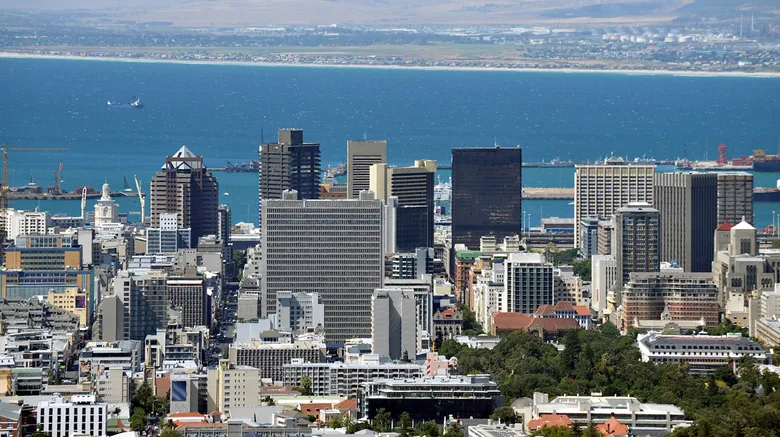Five Essential Considerations Before Your South African Adventure

South Africa, a land of breathtaking landscapes, diverse cultures, and incredible wildlife, beckons travelers from around the globe. To ensure a smooth and memorable trip to the “Rainbow Nation,” here are five top things to keep in mind before you pack your bags.
1. Prioritize Safety and Situational Awareness
While South Africa offers unparalleled experiences, it’s crucial to be mindful of safety. Violent crime, including robbery and carjacking, can occur, particularly in urban areas and townships. However, tourist hotspots generally have visible security, and millions of visitors enjoy incident-free trips annually.
Key safety tips:
- Be discreet with valuables: Avoid displaying expensive jewelry, cameras, or large amounts of cash.
- Be aware of your surroundings: Especially in crowded areas or at ATMs. It’s best to use ATMs inside malls or banks.
- Exercise caution after dark: Avoid walking alone, particularly in unfamiliar areas. Utilize reputable ride-sharing apps like Uber or trusted hotel transfers.
- Car safety: If driving, keep doors locked, windows closed, and valuables out of sight in the boot. Be aware of “smash-and-grab” incidents.
- Township visits: If visiting informal settlements, always do so with a reputable guide who knows the area well.
2. Understand Transportation Options (and Limitations)
South Africa is a vast country, and getting around requires some planning.
- Renting a car: For independent exploration, especially along scenic routes like the Garden Route, renting a car is highly recommended. Major car rental companies are available at airports. Remember that South Africa drives on the left side of the road.
- Ride-sharing apps: Uber is widely available and reliable in major cities like Cape Town and Johannesburg, offering a convenient and often more affordable alternative to metered taxis.
- Public transport: While some cities have public bus systems, they might not be as extensive or reliable as those in other developed countries. Minibus taxis, though common, are generally not advised for tourists due to safety concerns and a lack of formal regulation.
- Domestic flights: For covering long distances between major cities or regions (e.g., Johannesburg to Cape Town, or to Kruger National Park), domestic flights are efficient.
3. Navigate Health and Medical Considerations
South Africa has a dual healthcare system with both public and private facilities. Private hospitals are generally well-equipped and recommended for visitors.
- Vaccinations: Consult your doctor well in advance of your trip. Common recommendations include routine vaccinations (measles, mumps, rubella, tetanus, diphtheria, pertussis) and often Hepatitis A and Typhoid.
- Yellow Fever: If you are traveling from or transiting through a country with a risk of yellow fever transmission, a valid yellow fever vaccination certificate is required for entry.
- Malaria: While many popular tourist areas are malaria-free, certain regions, notably Kruger National Park and parts of Mpumalanga, Limpopo, and KwaZulu-Natal, do pose a malaria risk, especially during summer months. Discuss anti-malarial medication with your doctor if visiting these areas. Always use insect repellent and consider sleeping under mosquito nets.
- Sun protection: The South African sun can be intense. Pack high-SPF sunscreen, a hat, and sunglasses, and stay hydrated.
- Travel Insurance: Comprehensive travel insurance covering medical emergencies and potential evacuations is highly recommended.
4. Know Your Visa and Passport Requirements
Before you travel, ensure you meet South Africa’s entry requirements.
- Passport validity: Your passport must be valid for at least 30 days beyond your intended departure date from South Africa.
- Blank pages: You typically need at least two consecutive blank “visa” pages in your passport for entry and exit stamps.
- Visa requirements: Many nationalities, including citizens of the USA, UK, and most European countries, do not require a visa for stays of up to 90 days for tourism or business. However, it is crucial to verify the specific requirements for your nationality with the South African Department of Home Affairs or your nearest South African embassy/consulate well before your trip, as rules can change.
- Minors traveling: Strict regulations apply to minors traveling to and from South Africa. If traveling with a child under 18, you may need an unabridged birth certificate listing both parents’ names, and if only one parent is traveling, an affidavit of consent from the other parent.
5. Embrace the Local Currency and Tipping Culture
The official currency is the South African Rand (ZAR).
- Cash and cards: While credit and debit cards are widely accepted, it’s advisable to carry some cash for smaller purchases, markets, and tipping. ATMs are readily available in urban areas and malls.
- Tipping culture: Tipping is common and appreciated in South Africa, as many service industry workers rely on tips to supplement their income.
- Restaurants: 10-15% of the bill is standard if service is good.
- Petrol attendants: A small tip (R5-R10) is customary for filling your tank and often cleaning your windshield.
- Parking attendants (car guards): These individuals often assist with finding parking and watching your car. A small tip (R5-R10) is expected upon your return.
- Tour guides and safari rangers: Tipping is customary and depends on the duration and quality of the service. Your tour operator can provide guidance.
By keeping these five key points in mind, you’ll be well-prepared to experience the magic and vibrancy of South Africa with greater confidence and enjoyment. Enjoy your incredible journey!
Source: http://thepressradio.com





